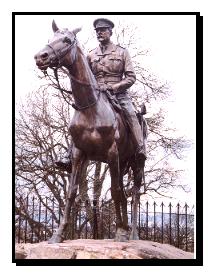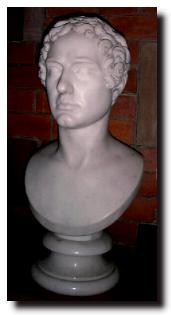
This Day in January

Here is a snapshot of historical events which took place in the month of January, with links to pages with further information, where available on the Web.
January 1 1537
King James V married Magdalene of France.January 1 1600
First celebration of New Year in Scotland on this date (March 25 till then).January 1 1651
Charles II crowned at Scone, the last coronation on Scottish soil.January 1 1760
Carron Ironworks near Falkirk begun by Roebuck and Garbett from Birmingham and William Cadell from Cockenzie, East LothianJanuary 1 1766
James Stewart the "Old Pretender" died.January 1 1783
Glasgow Chamber of Commerce incorporated, the first in Britain.January 1 1800
New Lanark Twist Company founded, with Robert Owen as manager.January 1 1848
Riots by Irish navvies in Stonehaven.January 1 1919
The naval yacht Iolaire struck a reef on approaching Stornoway Harbour at 2am. Despite being only 20 yards from shore, 205 out of 260 Lewis men and 24 crew died as the overloaded boat sank.January 1 1923
London Midland and Scottish (LMS) and London and North Eastern Railway (LNER) formed from amalgamation of earlier companies.1 January 1963
The Beatles opened a 5-day tour of Scotland to promote their first single "Love Me Do."January 2 1792
Thomas Muir, lawyer and political activist, arrested and charged with sedition.January 2 1971
Ibrox Park disaster, 66 supporters killed on stairway 13.January 3 1888
O H Mavor (James Bridie) physician and prolific playwright, born in Glasgow.January 3 1959
Poet and critic Edwin Muir died.January 4
Handsel Monday, traditionally the day on which gifts were exchanged in Scotland.January 5 1928
All those over the age of 65 received a state pension for the first time. it amounted to ten shillings (50 pence) a week.January 5 1982
Rod Stewart reached the top of the US charts with "Young Turks".January 5 1993
89,000-tonne Liberian-registered Braer oil tanker, carrying 84,500 tonnes of crude oil, hit rocks on Shetland Isles in heavy seas.January 6 1953
Malcolm Stewart, guitarist, born Glasgow.January 6 1981
A.J. Cronin, author of "Keys of the Kingdom" and creator of the British television series "Dr Finlay's Casebook" died.January 7 1451
Glasgow University founded at the request of James II and Bishop Turnbull.January 8 1661
The first newspaper in Scotland was published. "Mercurius Caledonius" offered coverage of "the Affairs now in Agitation in Scotland, with a Survey of Foreign Intelligence." It ceased publication on 28 March after only nine issues.January 8 1107
King Alexander I crowned.January 8 1707
Earl of Stair, held responsible for the massacre of Glencoe, died.January 8 1729
Two women arrested in Edinburgh for wearing men's clothing.January 8 1940
Rationing of sugar, bacon and butter introduced.January 8 1946
Lord Hardie of Blackford, Lord Advocate, born.January 9 1492
The Diocese of Glasgow was elevated to an Archdiocese by Pope Innocent VII.January 9 1799
Income tax introduced for the first time.January 9 1811
The first women's golf tournament took place in Scotland, at Musselburgh.January 9 1902
Birth of Rudolf Bing, co-founder of the Edinburgh Festival and Director 1947-49 (and general manager of New York Metropolitan Opera).January 9 1972
Liner Queen Elizabeth I, launched at John Brown's shipyard, Clydebank, in 1938, caught fire and sank in Hong Kong where it was to serve as a floating marine university.January 10 1945
Pop star Rod Stewart born.January 11 1815
John A MacDonald, first Prime Minister of the Dominion of Canada in 1867, born at 20 Brunswick Street in Glasgow.January 11 1999
Novelist and politician Naomi Mitchison died.January 12 1659
A frisky camel caused a sensation in Edinburgh.January 12 1940
John Buchan, author (39 Steps etc) and diplomat (Governor General of Canada, 1935/1940) died.January 13 603
Death of St Mungo, patron saint of Glasgow (and also known as St Kentigern).January 13 1796
John Anderson, founder of "Andersonian Institute" (now Strathclyde University) died.January 13 1893
Keir Hardie of Legbrannock, Lanarkshire, founded Independent Labour Party.January 13 1915
Mary Slessor, missionary in West Africa and known to many as "Ma", died in Calabar.January 14 1872
Greyfriars Bobby died after staying by his master's grave for 14 years.January 14 1878
Alexander Graham Bell demonstrated his telephone to Queen Victoria. She made the first call in the British Isles from her residence on the Isle of Wight.January 14 1930
Sir Thomas Mackenzie, New Zealand statesman and Prime Minister, died.January 14 1990
Death of actor Gordon Jackson (Tunes of Glory, Prime of Miss Jean Brodie and Upstairs, Downstairs etc).January 15 1973
Neil M Gunn, author of "The Silver Darlings" and many other books and short stories, died.January 15 1990
Strathclyde Region Council applied for 250,000 summary warrants against rate payers refusing to pay "Poll Tax" (introduced in Scotland in April 1989).January 16 1746
Retreating Jacobite army defeated Hanoverian forces at Battle of Falkirk.January 16 1707
Treaty of Union of Scottish and Westminster Parliaments ratified.January 16 1945
Units of 52nd Lowland Division and 1st Commando Brigade cross from Holland into Germany and assault Heinsberg in "Operation Blackcock" in which Fusilier Dennis Donnini of the 4/5 Royal Scots Fusiliers, received the VC.January 17 1795
Duddingston Curling Society became formally organised, one of the earliest in the history of curling - though Kilsyth lays claim to a date of 1716.January 17 1883
Author Compton Mackenzie (Whisky Galore etc) born.January 17 1926
Moira Shearer, ballet dancer and film star, born DunfermlineJanuary 18 1782
Death of Sir John Pringle, President of the Royal Society from 1772-1778 and physician to King George III. Sometimes called the "father of modern military medicine", the Scottish-born physician focused on the need to adopt a clean medical environment for the treatment of wounded soldiers. He also coined the term "influenza".January 19 1644
A Scottish army under the Earl of Leven crossed the river Tweed into England. It remained in England for three years playing an important part in the Civil War.January 19 1736
Birth of James Watt, mathematical instrument maker, developed the steam engine, invented the condensor and copying machine.January 20 1936
King George V died and was succeeded by King Edward VIII (who abdicated 325 days later in order to marry Mrs Simpson).January 20 1937
Benny Lynch crowned world flyweight champion.January 21 1290
Sweetheart Abbey, near Dumfries, founded by Devorguilla, mother of John Balliol.January 22 1689
William of Orange and Mary become joint sovereigns of the UK.
January 22 1788
Poet George Gordon Byron (later Lord Byron) born. He moved to Aberdeen at the age of four and attended Aberdeen Grammar School. The title was inherited from an uncle. The graphic here is a bust of Lord Byron in the National Portrait Gallery, Edinburgh.
January 23 1570
James Stewart, the Regent Moray on the abdication of Mary Queen of Scots, murdered in Linlithgow, triggering civil war.January 24 76
Birth of Publius Aelius Hadrianus, who built Hadrian's Wall to cut off Scotland from the rest of Britain.January 24 1890
First train over Forth Rail Bridge.January 25 1759
Robert Burns born Alloway.January 25 1817
First edition of the Edinburgh-based "Scotsman" newspaper, published by its founders, Charles MacLaren, William Ritchie and John MacDiarmid.January 26 1861
"One o'clock gun" fired for the first time from Edinburgh Castle.January 26 1878
Kirkpatrick McMillan, inventor of the bicycle, died.January 26 1908
The 1st Glasgow Scout troop was registered, the first to be formed.January 27 1783
Glasgow Herald newspaper first published. It is the longest continuously published daily newspaper in Britain.January 27 1926
First public demonstration of TV by John Logie Baird.January 28 1829
William Burke, murderer and body snatcher of "Burke and Hare" fame, executed.January 28 1908
Jimmy Shand, Scottish country dance band leader, born.January 29 1848
Greenwich Mean Time adopted by Scotland.January 29 1928
Earl Haig, Commander in Chief of British forces 1915-18, founder of the British Legion, died.January 30 1649
King Charles I executed.January 31 1761
Lachlan MacQuarie, "Father of Australia" born Ulva.January 31 1788
Charles Edward Stewart, "Bonnie Prince Charlie" died in Rome.January 31 1918
"Battle of Isle of Mey" - 100 men died in a series of collisions in the Firth of Forth, involving submarines and surface ships.January 31 1919
"Bloody Friday" Riot - mass rally of strikers in Glasgow's George Square repeatedly charged by police.January 31 1953
Princess Victoria, Stranraer-Larne ferry, sank in a storm with the loss of 133 lives; 44 were rescued.January 31 1953
66 crew were saved from the cargo vessel Clan MacQuarrie after it went aground near Borve, Lewis. In winds gusting to 100mph, it was the biggest ever carried out using breeches buoy in a single operation.
Return to Timeline Index
Where else would you like to go in Scotland?

